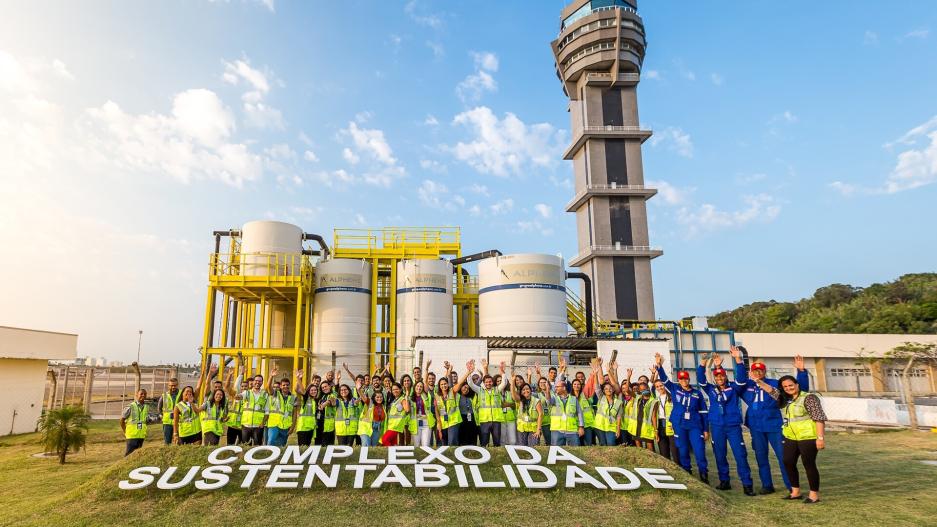
Positive Mobility
eMagIn Brazil, VINCI Concessions puts the transition to the test of reality
In Belém, COP30 opened with a paradox: Brazil, at once the world’s leading soy exporter and a hydroelectric powerhouse, embodies both the urgency and the difficulty of environmental transition. In a territory that is vital and full of challenge, VINCI Concessions is rolling out infrastructure built to last - and to show that a different mobility model is possible.
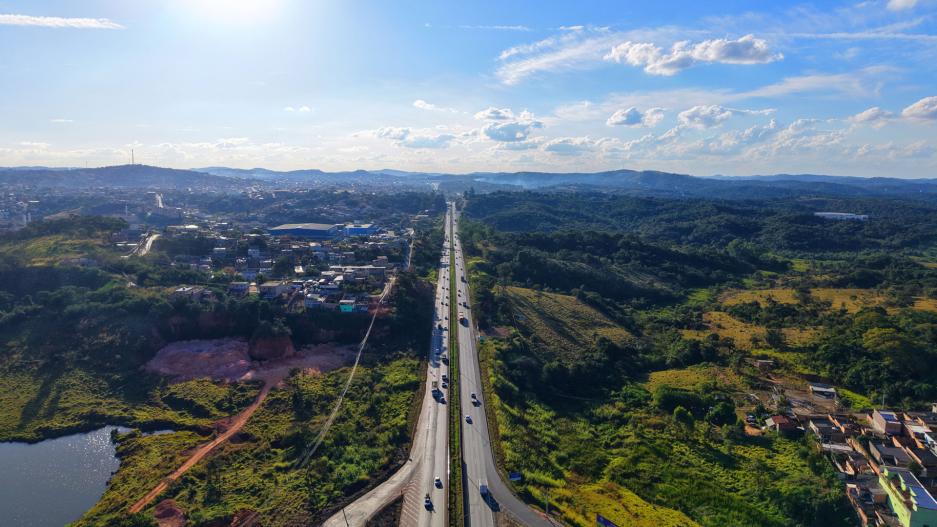
A country leading the transition
With more than 83% of its electricity coming from renewable sources, Brazil stands out among major world economies. The country is now seeking to align economic momentum with environmental ambition, aiming for carbon neutrality by 2050 without slowing growth still driven by logistics, agriculture and interregional trade.
In this continent-sized nation, mobility is not a convenience but a lifeline - connecting territories, transporting medical supplies and food, supporting students’ mobility. This is where the concession model, based on long-term investment for the public good, fully comes into play.
"Investing for the long term in service of the community: that's the essence of our presence in Brazil" - Nicolas Notebaert, CEO of Concessions at VINCI
In less than a decade, VINCI Concessions has built a major network in Brazil: eight airports and two highways stretching from the Amazon to the country’s southern metropolises - all becoming testing grounds for an energy transition compatible with rising mobility demand.
Salvador, Bahia: an airport accelerating its energy transition
In the bright Nordeste light, Salvador de Bahia airport now operates entirely on renewable electricity. More than 11,000 solar panels cover more than 30% of its needs, while its drinking-water consumption has fallen by a third in five years.
Modernized by VINCI Concessions' airports division - VINCI Airports - since 2018, it became in 2025 the first airport in the Americas to achieved ACA level 5, the highest international decarbonization standard - and a first for Latin America. With this achievement, Salvador joins a very exclusive group of 25 of the world’s most advanced airport infrastructures, becoming the sixth airport in the VINCI Airports network to reach this level alongside Lyon and Toulon in France and three airports in Portugal.
In May 2025, it became the first French airport with more than 10 million passengers to reach net-zero emissions - a year ahead of schedule. Between 2013 and 2024, Lyon cut its direct emissions by 94%. That path now guides Salvador and the entire Brazilian network.
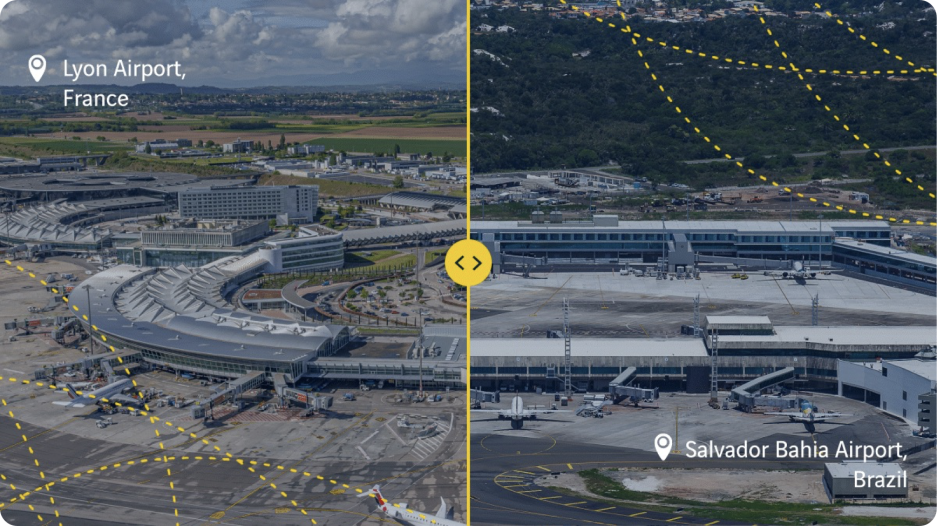
And with six of its airports in three different countries now accredited at level 5, and more than 60 engaged,
A strong signal at a moment when the aviation sector must demonstrate its ability to reduce its carbon footprint.
"Investing for the long term in service of the community: that's the whole meaning of our presence in Brazil" - Nicolas Notebaert, CEO of Concessions at VINCI
A network on a continental scale
Eight airports, nearly 1,200 kilometers of highways: in under a decade, VINCI Concessions has built an infrastructure network whose scale nearly mirrors the country’s own.
Here, mobility is not a comfort but a condition of life. In the immensity of the Amazon, when the river can no longer be navigated, air transport takes over. The airports of Manaus, Boa Vista, and Tabatinga connect isolated cities and ensure the transport of medicines, food supplies, and students.
In Manaus - Brazil’s third-largest cargo airport - more than 250 companies in the free trade zone depend on regular rotations.
Where the road ends, the airstrip becomes a vital link. This reliance makes the transition all the more crucial: it is not about building more, but building better, so that these essential connections also become climate levers.
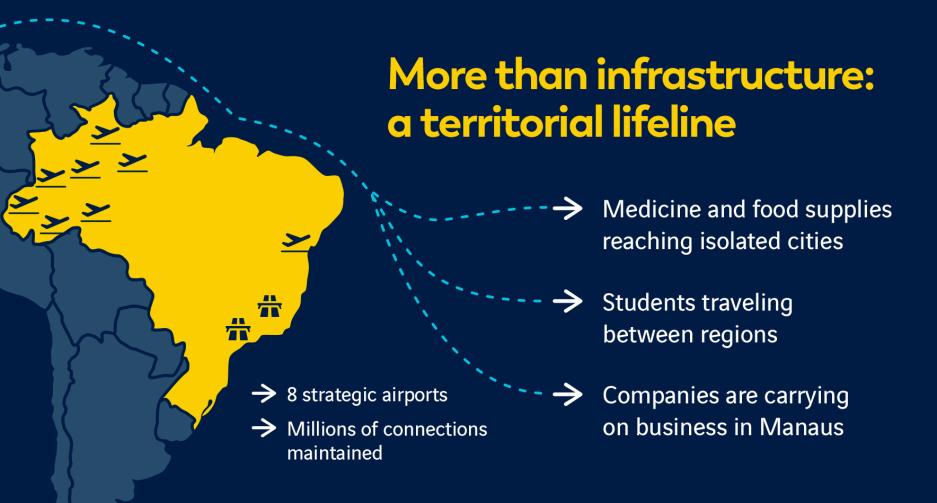
On the road to decarbonization
Beyond the airport sector, VINCI Concessions now also plays a role in the country’s environmental mobility transition. With Entrevias and Via Cristais, its VINCI Highways division consolidates nearly 1,200 kilometers of highways in Brazil, in the states of Sao Paulo, Minas Gerais and Goias.
In the state of São Paulo, the Entrevias concession - 570 kilometers of structuring axes - has undergone a profound transformation since 2023 under the impetus of VINCI Highways. Among the structural changes undertaken from the outset of integration, an ambitious environmental trajectory was launched, opening up an entirely new dynamic: precise calculation of emissions, a structured action plan, solar plants located at toll plazas and service areas, the gradual deployment of electric vehicles and tow trucks, actions on water management and a massive shift to LED lighting.
This environmental focus played a key role in the successful cultural integration of Entrevias within VINCI Concessions. The teams quickly adopted the new operational standards and practices, enabling Entrevias to win a VINCI Environmental Award for its innovative solutions in its very first year. The highway was subsequently named the best concession in the State of São Paulo in 2024, confirming the impact of this transformation.
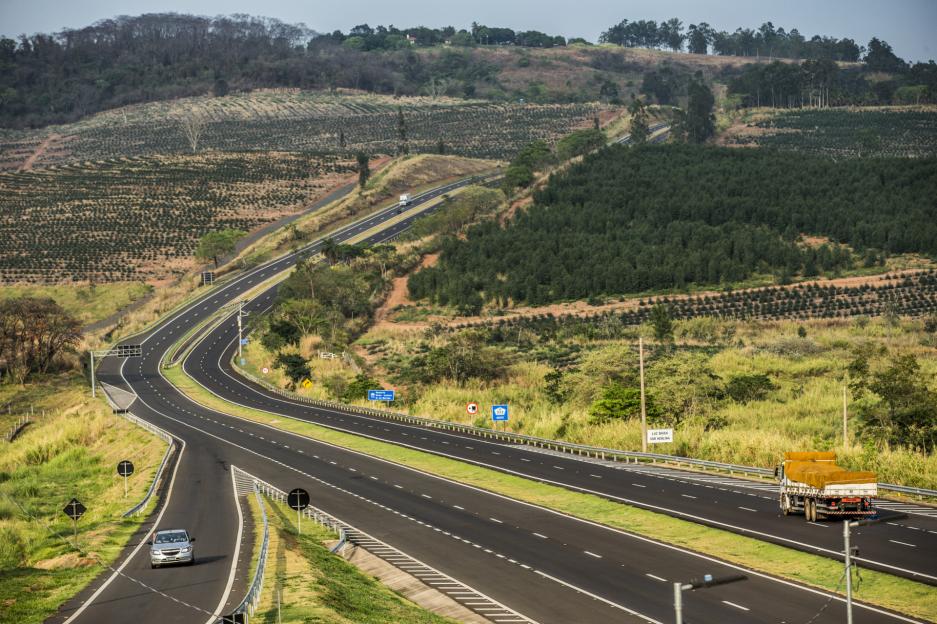
This structured approach then served as the framework for the integration of Via Cristais. In 2025, upon joining the VINCI Highways network, this 594-kilometer motorway had been neglected for several months, lacking maintenance and an environmental policy. The teams quickly implemented the same approach: switching to 100% renewable electricity, cleaning and recycling hundreds of kilograms of waste, installing LED lighting, and preparing a comprehensive environmental program for the major works planned for 2027.
In Brazil, Entrevias and Via Cristais are now progressing under the unified management of VINCI Highways, driven by the same priorities: to sustainably structure road operations, reduce impacts, modernize uses, and prepare these infrastructures for the effects of climate change. This approach could, in time, serve as a model for other networks on the continent.
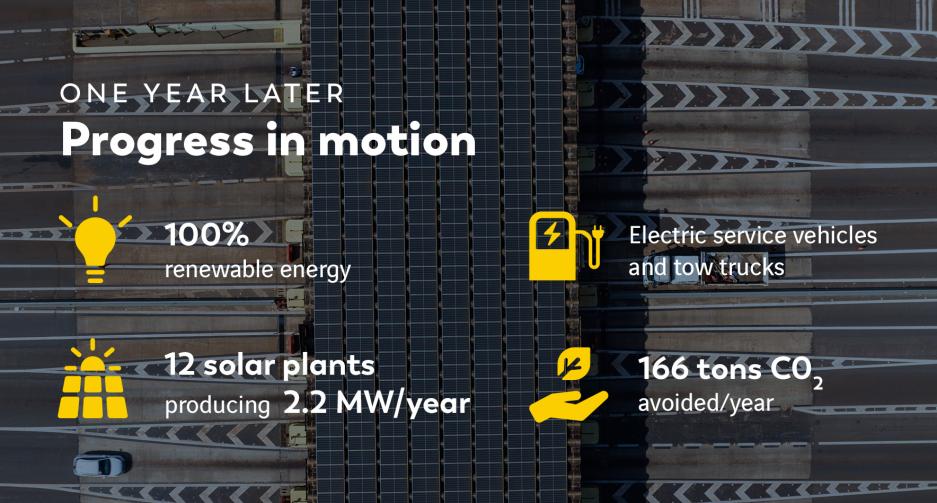
Training to transform
In Manaus, Salvador and Belo Horizonte, the transition also relies on the people who make it possible.
This deep local presence has made VINCI Airports Brazil’s leading international airport concessionaire by number of airports managed. With that leadership comes a responsibility: transferring the know-how developed in Salvador to the seven other airports in the Brazilian network, in a logic of collective upskilling.
It’s a long-term investment. The projects operated by VINCI Concessions in Brazil run 2047 for Salvador Airport and Entrevias, 2051 for the Amazonian airports, and 2055 for Via Cristais - timelines that require training today the teams who will operate these infrastructures tomorrow.

An environmental ambition with no borders
In Brazil, VINCI Concessions brings a tangible reality: that of infrastructures accelerating their transformation.
Eight airports, nearly 1,200 km of highways engaged in a decarbonization trajectory, 500 employees trained in transition-related professions: in Brazil, every link in the chain becomes a lever for action as close as possible to the territories, from the Nordeste to the Amazon, from terminals to service areas.
The transition is not told, it is measured - in megawatts produced, in emissions avoided, and in responsible kilometers. In Brazil, theory has taken shape. And VINCI Concessions’ environmental ambition knows no borders, as you will see in an upcoming article.
